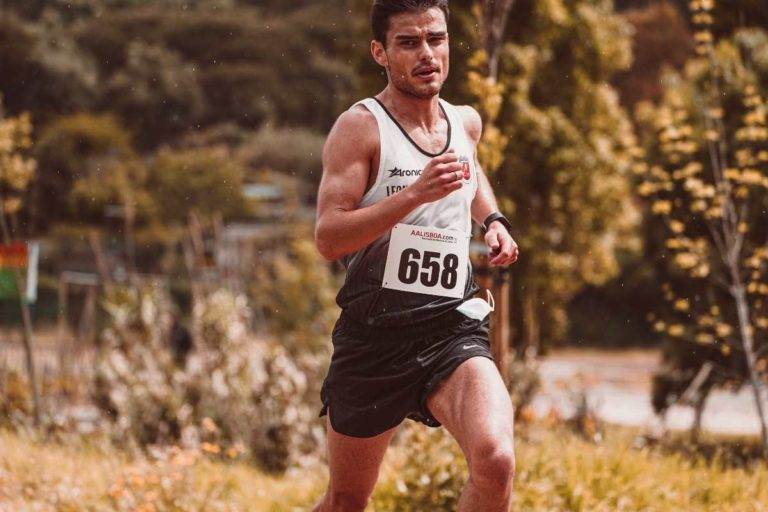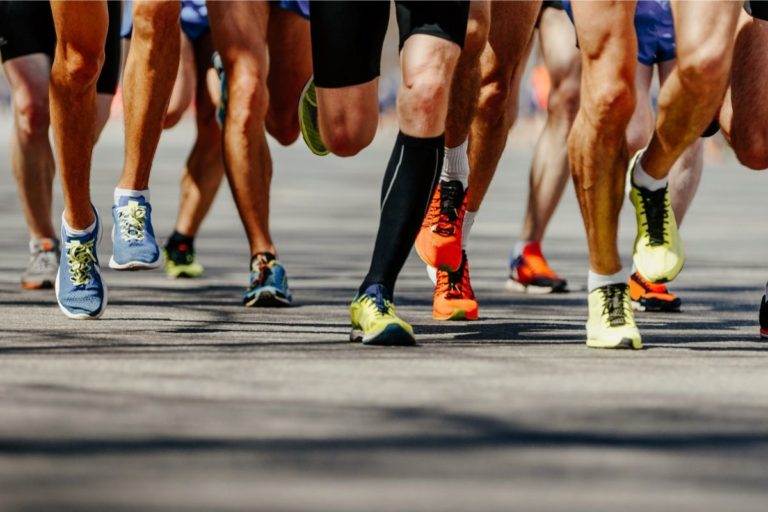Long Run Recovery Tips: How To Recover After A Long Run

Post-run recovery is important for running, regardless of how far you ran, so read on to find out everything you need to know!
Lots of people who stick to a running routine forget one of the most important parts: the post-run recovery.
If you don’t include a post-recovery run in your routine, you risk the chances of injury. Injuries can be incredibly detrimental to your progress.
But don’t worry, we are here to help! Below, you will find all the tips you need to know about how to recover after a long run.
Why Is Post-Run Recovery So Important?
The most important thing to remember when running is that consistency is key. It’s not about how far you run, but rather how consistently you run and stick to your running routine. This goes for your warm-up and recovery as well.
Runners are prone to injuries, especially in the ankles, and this is why consistent post-run recovery is so important.
Running is a high-impact exercise and sport, and it constantly adds strain to your body.
- Most running injuries can be avoided when you properly warm up and properly take the time out for recovery.
- Post-run recovery helps with muscle damage and inflammation, which are two of the main reasons why runners get injuries in the first place.
It’s always in your best interest to make sure you include proper recovery in your running routine.
Luckily, there are simple ways you can do it, and it really isn’t too taxing. So read on to find out how!
How To Recover After A Long Run
Post-run recovery is actually a lot more simple than you might think.
Simple things like rehydrating, stretching, and getting the right amount of sleep all count towards your post-recovery run.
Read on to find out more about the ways you can recover after a long run.
1. Load Up On Carbs After a Run
When you run, glycogens are used as a main source of fuel. Glycogens come from stored carbohydrates, and the only way you are going to get those carbs is by eating!
Studies have shown that around every 45 minutes, your glycogen stores start to deplete, so the longer you run, the less glycogen you have.
This is why it’s so important to load up on carbs after a run.
High-carb meals will completely refuel your glycogen stores. If you are consistently running, you won’t have to worry about putting weight on, so make sure that you eat a decent meal that is full of carbs.
Do this specifically after you have gone for a run in order for it to count toward recovery.
Eating enough carbs after you run also aids in muscle repair and increases your blood sugar levels.

2. Rehydrate to Help Recovery
Exercising will increase your body’s core temperature, and when this happens, you sweat.
But sweating causes you to lose minerals and fluid, and they need to be replenished.
The thing is, losing all this fluid can happen incredibly quickly when you are doing intense sports.
This is why it’s so important to make sure you are rehydrating as you run, but you also need to rehydrate after you run too.
Most people remember to rehydrate by drinking water, but another important thing that needs replenishing is your body’s electrolytes.
Standard water isn’t quite going to cut it for this, but there are a few things you can do to replenish those electrolytes.
Some of the best options include sports drinks, coconut water, sparkling water, or even just adding a teaspoon of sea salt and a squeeze of lemon to your water after a workout.
It isn’t difficult to replenish your electrolytes and it will also rehydrate you at the same time.
3. Make Sure You Stretch After a Run
You should be doing this already, but many of us tend to forget how important stretching after a run is.
Almost everyone remembers to stretch before a run, but if you are going to be running consistently, you need to make sure you stretch after too.
- Stretching after a run can increase your blood flow and your range of motion (ROM).
- Stretching is incredibly beneficial because it can reduce the risk of injury a lot more than if you didn’t do it.
Stretching after you run shouldn’t be strenuous either. You can keep it simple, and it will still be effective.
Simple ways you can stretch and cool down post-run include a small walk or even just some small stretches.
Doing this will loosen your muscles and stop them from getting sore. It also decreases the likelihood of inflammation.
4. Get Adequate Sleep to Help Recovery
This is another one that often gets overlooked, but the way you sleep has a massive impact on how your body recovers.
If you don’t get an adequate amount of sleep, your body simply can’t recover properly.
- The majority of muscle repair and recovery actually happens while you are sleeping.
- If you are staying up late at night after a run, your body simply doesn’t have the time to repair itself.
Luckily, physical exercise like running should naturally tire you out, and even if your sleeping pattern is a bit bad, you will slowly start to fall asleep earlier the more you train.
The Bottom Line
Warm-ups are incredibly important when it comes to running, but recovery after you run is equally as important.
Post-run recovery helps to stop inflammation of the muscles, increase blood flow, and decrease the chances of you getting an injury.
There are plenty of ways in which you can recover after a long run, so use the examples we have talked about here.
You will be surprised by how quickly these recovery exercises can positively impact you!
Try some of these recovery exercises for yourself!






